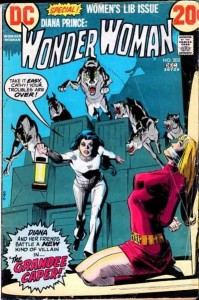 I recently posted in a Reddit thread about superhero novels and thought that the list I put together there might form an interesting blog post.
I recently posted in a Reddit thread about superhero novels and thought that the list I put together there might form an interesting blog post.
Superhero novels are near and dear to my heart for several reasons.
- One, I grew up reading comic books and loved some of them dearly. The only fanfic I have ever written involved the uncanny X-Men and the super villain Arcade, along with a thinly veiled version of myself. It has, luckily, been lost and not recorded for posterity.
- Two, I loved playing superhero RPG’s like Villains and Vigilantes and Champions. Superhero 2044 came out around the same time, but it wasn’t as interesting to my gaming group, which tended to stick with Champions.
- This led in fact to three, which is that I once wrote a novel involving superheroes. I wrote it while in the Masters program in writing at Johns Hopkins. At the time, watchmen had just come out, and the possibilities of superhero literature had not, perhaps we shall say, been realized as effectively as it is today. In fact, I took the book to Tom Disch, who was teaching in the office next to me, and who read a chapter, fixed me with a gimlet eye, and asked, “but why bother?” Several publishing houses looked at the novel and felt it was well written but not commercial. Some time later, tragically, the manuscript was lost in the course of moves. Its heroes can be found in a short story which appeared in Strange Horizons, Ms. Liberty Gets a Haircut, which can also be found in story collection Near + Far. Other superhero stories by me appear in Corrupts Absolutely and Eyes Like Sky and Coal and Moonlight
So here’s some of my favorites:
From the Notebooks of Dr. Brain by Minister Faust is awesome superhero fiction. It’s told by the therapist of a superhero team that closely resembles the Avengers. Faust also has The Coyote Kings of the Space-Age Bachelor Pad.
Count Geiger’s Blues by Michael Bishop is amazing. Along the same lines is Bishop’s Brittle Innings, the story of a baseball playing monster.
The Wild Cards series edited by George R.R. Martin (of GoT fame) is tons and tons of fun and there are a LOT of them for those of us who like to read at a fast and furious clip.
In Hero Years I’m Dead by Michael Stackpole is terrific along with Once a Hero. I wish Stackpole would write more in this world.
Carrie Vaughn After the Golden Age is told from the point of view of the unpowered daughter of a pair of superheroes, Captain Olympus and Spark.
Playing for Keeps by Mur Lafferty.
Austin Grossman’s Soon I Will Be Invincible is told from alternating experienced villain and novice hero viewpoints.
Michael Chabon’s The Amazing Adventures of Kavalier & Clay is a classic.
The Sugar Frosted Nutsack by Mark Leyner is, like all of Leyner’s books, hysterical, but this time with superheroes.
Those Who Walk in Darkness by John Ridley is the beginning of a series that I found reminiscent of joint online project Shadow Unit, created by Elizabeth Bear, Holly Black, Leah Bobet, Emma Bull, Sarah Monette, and Will Shetterly.
Nobody Gets the Girl by James Maxey. Series.
Evil Genius by Catherine Jinks is YA superhero fantasy.
Karma Girl by Jennifer Estep is frothy and funny and sweeps you along in a nicely satisfying story. First of a series.
Along the same lines is Black and White, the story of a superhero and a supervillain friendship by Jackie Kessler and Caitlin Kittredge. First in a series.
Santa Olivia by Jacqueline Carey (also known for her Kushiel adult epic fantasy series) is the story of a group genetically engineered for superpowers. First of a series.
If you want something that goes back to some of F&SF’s roots, try Doc Savage or A Feast Unknown by Philip Jose Farmer.







4 Responses
This: http://tychebooks.com/books/masked-mosaic/
I love super hero novels! I just read Ian Tregillis’ Bitter Seeds, the first part of his “Milkweed Triptych,” — British warlocks battling Nazi Ubermenschen. What’s not to love? 🙂
The Wild Cards series is the only reason I knew who GRR Martin was when Game of Thrones became popular. I’ve got the first 3 on my shelf.
Excellent taste. But let me direct your attention to Jim Munroe’s _Flyboy Action Figure Comes with Gasmask_, which is either the best one or really close.